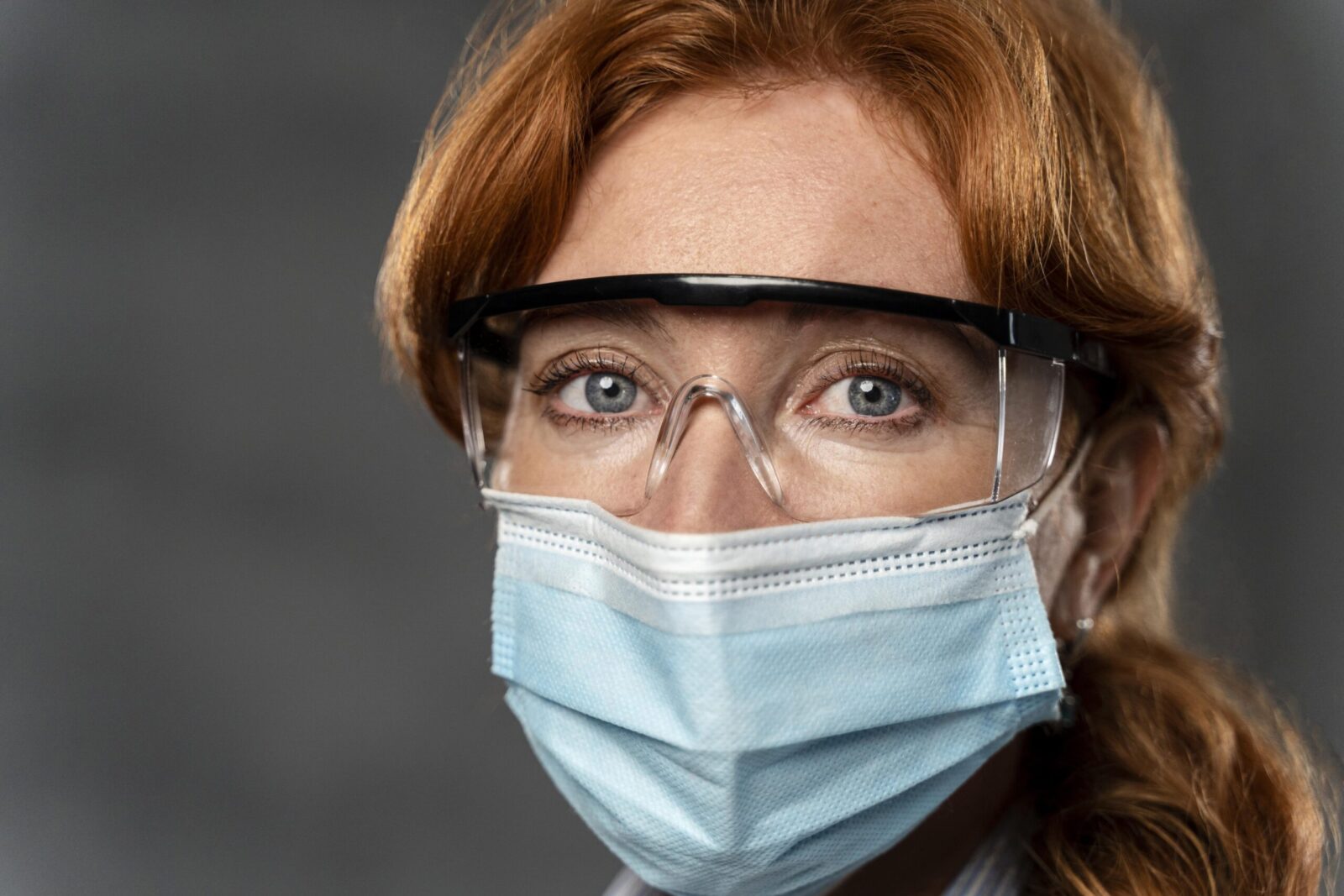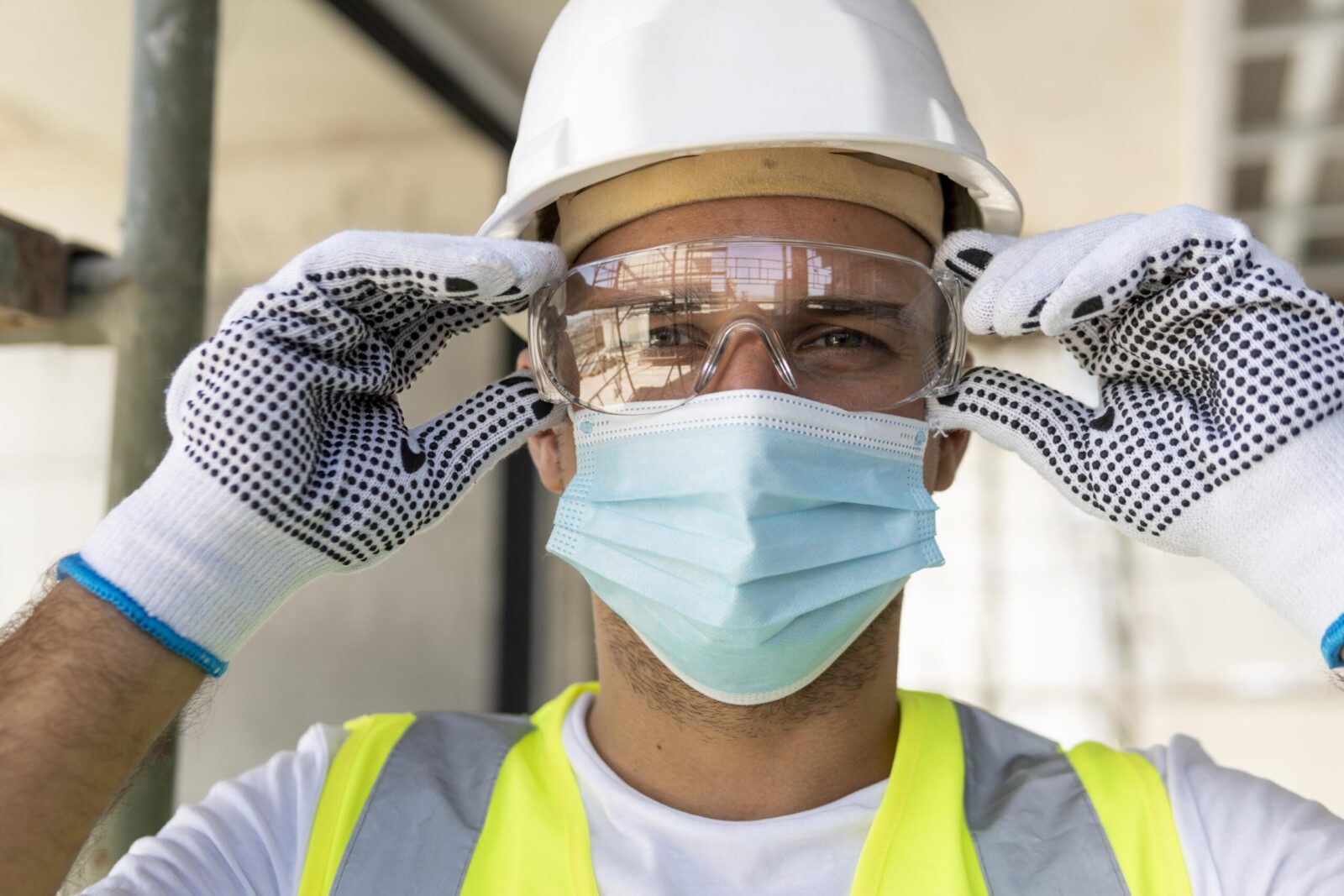
Essential PPE in the Food Industry: What You Need to Know
Overwhelmed by PPE options for food safety? Master your PPE selection for food workers safety with these practical tips.

Get 20€ off on your first order!
Looking for the right lab safety glasses? This guide will help you choose the perfect pair for your specific needs, ensuring both comfort and protection. From chemical resistance to UV protection, we cover all the important factors so you can make an informed decision.
By the end of this article, you’ll understand what to look for and feel confident in selecting the best eyewear for your lab environment. Plus, we’ll provide tips on maintenance and integration with other PPE to solve any follow-up questions you might have. Keep reading to find your ideal solution!

Before purchasing, evaluate your lab environment to determine your specific needs. Identify specific challenges like chemical splashes or sharp debris to select the most effective protective eyewear for your needs. Understanding these risks will help you select the most suitable protective eyewear.
European regulations, such as the EN166 standard, define requirements for safety glasses. Always choose eyewear that complies with these standards. For details on EN166, visit EN166 Standard Explained.
Comfortable glasses encourage consistent use. Choose options with adjustable nose pads, flexible temples, and lightweight designs.
If you’re using hearing protectors or hard hats, ensure your glasses integrate seamlessly. For example, modern safety glasses are often designed with slim temples to fit comfortably under ear muffs or helmets, enhancing overall safety and comfort. Explore related PPE options in Hearing Protectors and Hard Hats.
For those who wear glasses, prescription safety glasses or over-the-glass designs are essential. Customizable options allow for optimal clarity without compromising protection.
| Feature | Chemical Resistance | Impact Resistance | Anti-Fog Coating | UV Protection |
| Basic Safety Glasses | ✓ | ✓ | ||
| Premium Glasses | ✓ | ✓ | ✓ | ✓ |
| Goggles | ✓ | ✓ | ✓ | Optional |
For a wide selection of lab-appropriate eyewear, explore our safety glasses collection.
Regularly clean your glasses with a microfiber cloth and non-abrasive cleaning solution, ideally after each use. Avoid harsh chemicals or rough materials that could damage the lenses. Store them in a dedicated protective case to maintain their clarity and prolong their lifespan. Store them in a protective case to prevent scratches.
Inspect for wear and tear frequently. Regularly replacing scratched lenses or damaged frames ensures optimal vision and consistent safety performance.
For further insights into PPE for specific needs, consider reading the following articles, which delve deeper into selecting specialized protective gear:
We hope this guide has been helpful in navigating the key factors for selecting the best lab safety glasses, from lens material to comfort and compliance with safety standards. Whether you’re working with chemicals, debris, or intense light sources, we’re here to support your needs.
Explore our full range of lab safety glasses on Droppe, where trusted brands are available to suit every requirement and preference.
Have questions or need guidance in choosing the right eyewear? Feel free to reach out—we’re always here to help ensure your safety and confidence in every purchase.
– The Droppe Team
Yes, you can opt for prescription safety glasses or use over-the-glasses (OTG) designs for a comfortable fit.
Look for safety glasses with anti-fog coatings or use anti-fog sprays to keep lenses clear during work.
It depends on the specific hazards in your lab. Always choose eyewear designed for the specific risks you face, such as chemicals or UV light.
Replace them if the lenses are scratched, the frames are damaged, or if they no longer fit comfortably.
Yes, many safety glasses are versatile and can be used in a variety of environments like construction, workshops, or outdoor work.
Thank you! You've signed up for our newsletter.



















Overwhelmed by PPE options for food safety? Master your PPE selection for food workers safety with these practical tips.

Struggling to maintain clear vision in demanding environments? This guide is here to help. By the end, you’ll know exactly...

Electricians across Europe face unique challenges that require reliable safety glasses to ensure both protection and efficiency. Whether safeguarding against...

Overwhelmed by PPE options for food safety? Master your PPE selection for food workers safety with these practical tips.

Struggling to maintain clear vision in demanding environments? This guide is here to help. By the end, you’ll know exactly...

Electricians across Europe face unique challenges that require reliable safety glasses to ensure both protection and efficiency. Whether safeguarding against...
Get 10€ off on your first order!
Save 30% by buying directly from brands, and get an extra 10€ off orders over €100
Save 30% by buying directly form brands, and get an extra 10€ off orders over €100